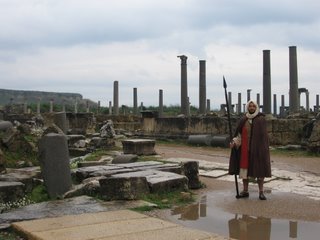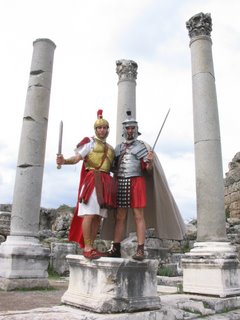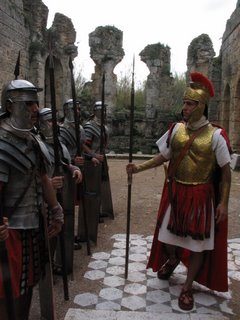history is alive
 i had the priviledge to visit the antique city of perge in Antalya, a southern city of Turkiye. below is what wikipeadia has to say about this spectacularly preserved human construction.
i had the priviledge to visit the antique city of perge in Antalya, a southern city of Turkiye. below is what wikipeadia has to say about this spectacularly preserved human construction.Now commonly spelled "Perge" and pronounced "per-geh", Perga was the capital of the then Pamphylia region, which is in modern day Antalya province on the southwestern Mediterrenean coast of Turkey.
In the twelfth century BC, there was a large wave of Greek migration from northern Anatolia (in modern day Turkey) to the Mediterranean coast. Many settled in the area immediately east of the area of modern-day Antalya, which came to be known as Pamphylia, meaning "land of the tribes". Four great cities eventually developed in Pamphylia: Perga, Sillyon, Aspendos and Side.
 Perga itself was founded in around 1000 BC and is nearly 20km inland. It was sited inland as a defensive measure in order to avoid the pirate bands that terrorized this stretch of the Mediterranean.
Perga itself was founded in around 1000 BC and is nearly 20km inland. It was sited inland as a defensive measure in order to avoid the pirate bands that terrorized this stretch of the Mediterranean.
In 546 BC, the Persians defeated the local powers and gained control of the region. Two hundered years later, in 333 BC, the armies of Alexander the Great arrived in Perga during his war of conquest against the Persians. The citizens of Perga sent out guides to lead his army into the city.
Later, Alexander was followd by the Seleucids, under whom Perga's most celebrated ancient inhabitant, the mathematician Appollonius (c.262 BC – c.190 BC), lived and worked. Appollonius was a pupil of Archimedes and wrote a series of eight books describing a family of curves known as conic sections, comprising the circle, ellipse, parabola and hyperbola.
Roman rule began in 188 BC, and most of the surviving ruins today date from this period. After the collapse of the Roman Empire, Perga remained inhabited until Selcuk times, before being gradually abandoned.
Perga is today an archaeological site and a major tourist attraction. Another notable historical figure who twice visited Perga was St. Paul the Apostle and his companion St. Barnabas, as recorded in the biblical book, the Acts of the Apostles (Acts 13:13-14 and 14:25), during their first missionary journey, where they "preached the word" (Acts 14:25) before heading for and sailing from Attalia (modern-day Antalya city), 15 km to the southwest, to Antioch.
Another notable historical figure who twice visited Perga was St. Paul the Apostle and his companion St. Barnabas, as recorded in the biblical book, the Acts of the Apostles (Acts 13:13-14 and 14:25), during their first missionary journey, where they "preached the word" (Acts 14:25) before heading for and sailing from Attalia (modern-day Antalya city), 15 km to the southwest, to Antioch.
Tour guides tell the story that Perga is the birthplace of Beer. It was discovered by accident.

0 Comments:
Post a Comment
<< Home